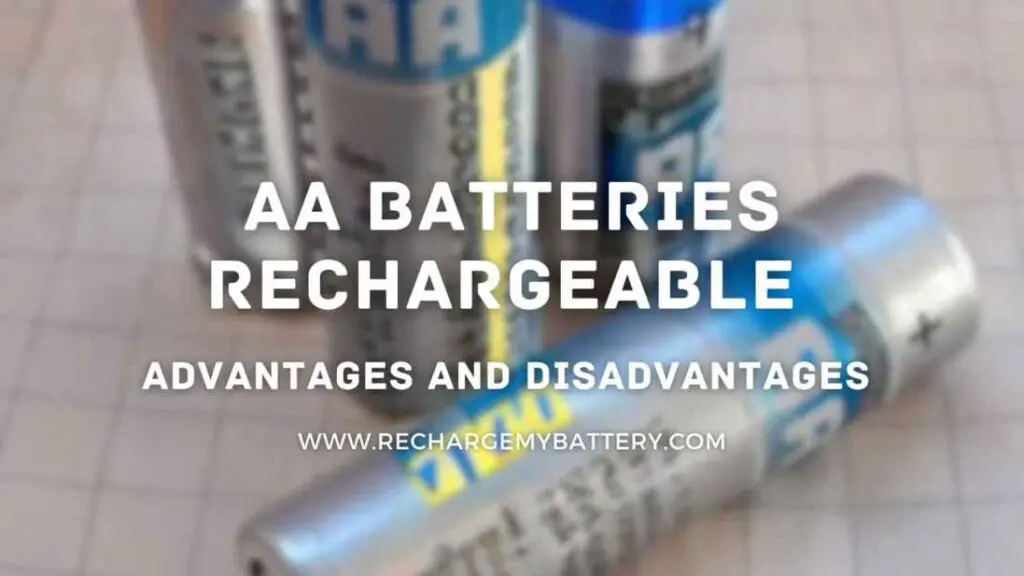One common concern among battery users is leakage. Standard alkaline batteries are notorious for leaking and causing damage to devices, but what about rechargeable batteries? In this article, we will explore whether rechargeable batteries leak as badly as standard alkaline batteries and provide you with valuable insights into the topic.
Understanding Battery Leakage
Battery leakage occurs when the chemicals inside a battery react with the metal casing, resulting in the release of corrosive fluids. This fluid can damage the battery compartment, electronics, and other surrounding components. The leakage is commonly associated with alkaline batteries, primarily due to their construction and chemistry.
The Science Behind Rechargeable Batteries
Rechargeable batteries, also known as secondary batteries, are designed to be reusable by reversing the chemical reactions that occur during discharge. Unlike alkaline batteries, which are primarily made of zinc and manganese dioxide, rechargeable batteries utilize different chemistries such as nickel-cadmium (Ni-Cd), nickel-metal hydride (Ni-MH), and lithium-ion (Li-ion).
Comparing Leakage Risks: Rechargeable vs. Alkaline Batteries
Rechargeable batteries generally have a lower risk of leakage compared to standard alkaline batteries. This is primarily due to the differences in their chemistry and construction. While rechargeable batteries are not entirely immune to leakage, the risk is significantly reduced when compared to alkaline batteries.
Factors Affecting Leakage in Rechargeable Batteries
Several factors can contribute to leakage in rechargeable batteries, including:
- Overcharging: Overcharging a rechargeable battery can lead to excessive heat generation, which may cause leakage. It is essential to use chargers specifically designed for the battery type and follow the manufacturer’s instructions.
- Physical Damage: Dropping or mishandling rechargeable batteries can cause structural damage, leading to leakage. It is crucial to handle batteries with care and avoid exposing them to extreme temperatures.
- Age and Wear: Rechargeable batteries have a limited lifespan, and as they age, their internal components may degrade, increasing the risk of leakage. Regularly replacing old batteries can help mitigate this risk.
Best Practices to Prevent Battery Leakage
To minimize the risk of leakage in rechargeable batteries, consider the following best practices:
- Use Quality Batteries: Opt for reputable brands that have a track record of producing reliable and leak-resistant rechargeable batteries.
- Follow Charging Guidelines: Always use chargers recommended by the battery manufacturer and avoid overcharging.
- Handle with Care: Avoid dropping or mishandling batteries to prevent structural damage.
- Regular Inspection: Check batteries periodically for signs of damage or corrosion. Replace any damaged batteries promptly.
- Proper Storage: Store rechargeable batteries in a cool, dry place, away from direct sunlight and extreme temperatures.
Benefits of Rechargeable Batteries
Rechargeable batteries offer several advantages over standard alkaline batteries, including:
- Cost Savings: While rechargeable batteries may have a higher upfront cost, they can be reused multiple times, reducing long-term expenses.
- Environmental Impact: Rechargeable batteries produce less waste compared to disposable alkaline batteries, making them a more environmentally friendly option.
- Convenience: With rechargeable batteries, you don’t have to constantly buy and replace batteries, saving time and effort.
- Performance: Rechargeable batteries are known for delivering consistent and reliable performance, making them suitable for high-drain devices.
Conclusion
In conclusion, rechargeable batteries generally have a lower risk of leakage compared to standard alkaline batteries. However, it is essential to handle them with care, follow proper charging guidelines, and replace aging batteries to minimize the risk further. Rechargeable batteries offer numerous benefits, including cost savings, environmental friendliness, and reliable performance. By adopting best practices and choosing quality rechargeable batteries, you can enjoy the convenience and peace of mind that they provide.
FAQs
Q1: Are all rechargeable batteries prone to leakage?
No, not all rechargeable batteries are prone to leakage. However, the risk can vary depending on factors such as battery quality, age, and usage.
Q2: Can battery leakage be harmful to humans?
Yes, battery leakage can be harmful. The corrosive fluids released by leaking batteries can cause skin irritation and damage to electronic devices. It is important to handle leaky batteries with caution and dispose of them properly.
Q3: How can I safely dispose of leaky batteries?
Leaky batteries should be handled as hazardous waste. Contact your local waste management facility or recycling center for guidance on proper disposal methods.
Q4: Do rechargeable batteries last longer than alkaline batteries?
Rechargeable batteries have a limited lifespan and typically provide fewer overall hours of use compared to alkaline batteries. However, their reusability and cost-saving benefits make them a practical choice for many applications.
Q5: Are there any specific brands known for leaky rechargeable batteries?
While there are no specific brands known for universally leaky rechargeable batteries, it is always advisable to choose reputable brands that prioritize quality and performance.

